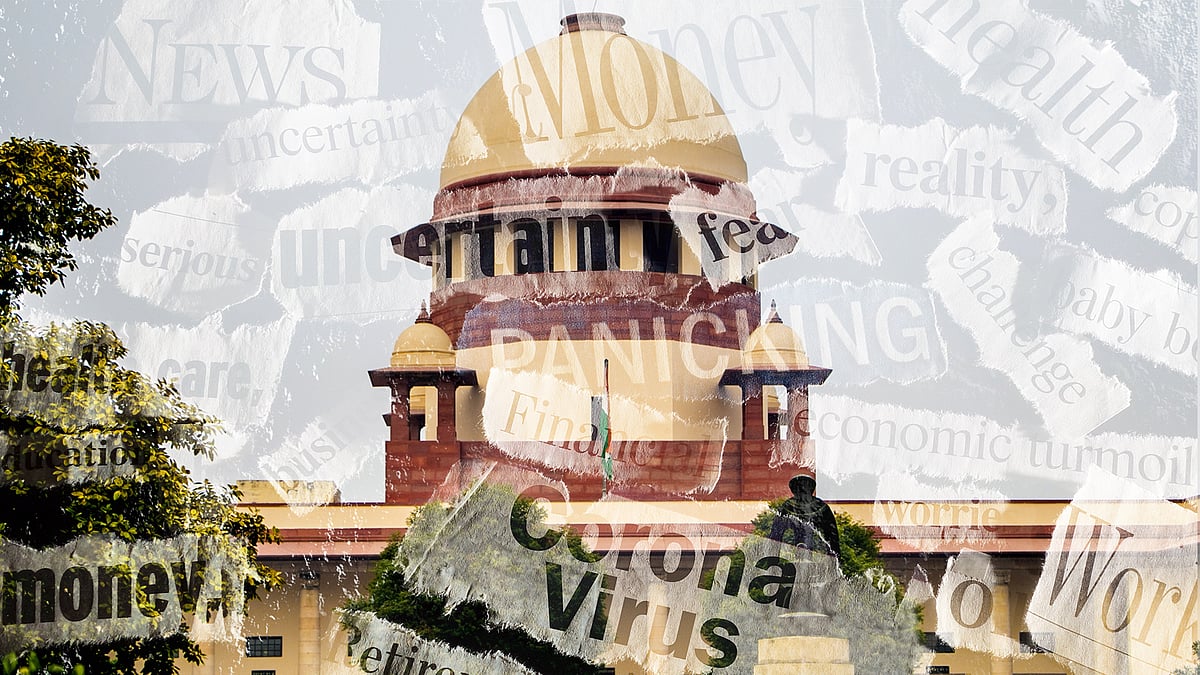Covid-19 has brought technology to courts. And this should continue after the lockdown
Tools like videoconferencing and online archives will make the legal system more efficient and accessible.
India, and the world, is in lockdown. Some states may well extend it beyond April 15, and Prime Minister Narendra Modi has also indicated that this might happen.
So, how have our courts been doing? They have made the most of a difficult situation.
Initially, most courts reduced their working hours to about two to four hours and restricted hearings only to essential matters where urgent reliefs are required. Many courts, including labour courts and the city civil court in Mumbai, were completely shut, asking lawyers and litigants to come for their cases on the next dates as reflected on the website.
Extraordinary times take extraordinary measures, and some of them happened in the last few days.
For example, on March 21, the Bombay High Court passed an order noting that most urgent matters deal with restraining municipal corporations from demolishing or evicting structures, or holding auctions of properties that have been attached.
To prevent people from rushing to court against demolitions, the court suggested that Maharashtra’s municipal corporations “consider issuing a general directive not to demolish, evict and/or hold auctions of attached properties for a specified period”, with a caveat that in “some extraordinary cases”, corporations “shall be at liberty to move the appropriate courts and obtain necessary orders”.
Earlier in March, another judge of the Bombay High Court directed the setting up of a video-conferencing system to mention urgent matters between 1 to 2 pm on court working days, so as to avoid overcrowding and in-person contact in courtrooms.
A recent notification stated that on April 3, 8 and 15, to tackle urgent matters, the Bombay High Court and all its benches at Nagpur, Aurangabad and Goa would have specific judges designated to hear urgent matters from 12 noon to 2 pm.
Courts are also being proactive with litigants that are approaching them for frivolous reasons. They mean business. The high court in Kerala dismissed a writ petition seeking a direction to the Kerala State Beverages Corporation over the online delivery of potable liquor. The court also imposed costs of Rs 50,000 on the petitioner.
The Supreme Court had already announced some guidelines for the use of video-conferencing facilities by various high courts, including making such facilities available to those litigants that may not have the means to access them, such as through an amicus curiae, restricting the access of only necessary parties into courtrooms, guidelines of what circumstances in which evidence will be recorded through video-conferencing, and such other matters.
The Bombay High Court issued directions for all special hearings by video-conferencing. On April 9, it held one of its first sets of video-conferencing hearings, where it listed nine urgent matters, such as a writ where a student had been rusticated from her college for allegedly smoking cannabis on campus, bail pleas, etc. Parties were required to make online filings for the listing of these urgent matters.
These hearings were conducted via a Zoom meeting where the advocates for both sides presented their case, while the court presided over the hearing, guided lawyers and parties present via video conference, and passed ad-interim orders. The hearings, by and large, were smoothly conducted with the court associate coordinating with the judge and the stenographer taking down dictation of orders.
The court even took comments from attending participants at the end of the hearings. After its success, Justice GS Patel, who presided over matters, also decided to hear all matters on his board until April 14, 2020 via video-conferencing.
If the nuts and bolts of the system are smoothed out, there is no reason why this system cannot be carried forward even after the lockdown. Particularly for case management conferences or hearings where directions are being sought, but no substantial matter is going to be proceeded with, courts in India can dedicate a particular time slot for those matters, which can be virtually heard without the need to clog the courts physically.
This will not only improve efficiency and rid courts of unnecessary paperwork, it will also ensure better accountability on the part of lawyers and clients, since parties will not be in a position to seek routine adjournments. A lot of court work is procedural: mentioning and listing of matters, seeking directions for issues, seeking corrections of previously passed orders, adding parties to a plaint or deleting some parties, amending pleadings, etc. All these matters may be better dealt with through an online video-conferencing system.
Another category of cases could be those where parties are out of the jurisdiction of the court but their presence is required. For those stages in a matter, where a number of documents need to be perused or where a witness needs to be examined in person, physical hearings are more appropriate. But to the extent possible, the use of video-conferencing facilities should be encouraged.
The more informal and accessible we make our court system, and dispense with pedantic requirements, the more accessible it will make justice. In fact, the photocopying of thousands of pages of documents can be prohibitively expensive for parties and also adds to the burden of the court’s physical infrastructure.
Online archives — even exclusively, unlike the current system where a CD is filed in addition to the physical filing — are also better devices for long term storage so that a freak accident or fire will not rid our systems of filed papers in old cases. If one is to walk through the public works department building of the Bombay High Court, there are reams and reams of files of case papers stacked from floor to ceiling. Isn’t it time to move our filings online?
Covid-19 has brought a lot of uncertainty and destruction. But it has also taught various professions to be more reliant on technology and use digital infrastructure to the advantage of all. The use of online systems is an inherently more democratic and accessible system and it is heartening to see our courts, which are so steeped in tradition, embrace these new ways. The legal fraternity and litigants would welcome this new normal.
 ‘Media as the government’s stenographer': Journalists react to Supreme Court order on coronavirus coverage
‘Media as the government’s stenographer': Journalists react to Supreme Court order on coronavirus coverage
 What’s India doing to keep its prisoners safe from coronavirus?
What’s India doing to keep its prisoners safe from coronavirus?